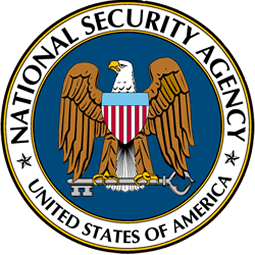 |
| A bald eagle on a fucking KEY |
provocatively argues that “[t]he question is not whether we will have a surveillance state in the years to come, but what sort of state we will have.”
The professor distinguishes between authoritarian and democratic surveillance states:
What do authoritarian surveillance states do? They act as “information gluttons and information misers.” As gluttons, they take in as much information as possible....But authoritarian surveillance states also act as misers, preventing any information about themselves from being released. Their actions and the information they gather are kept secret from both the public and the rest of government.
...I think this is a pretty interesting approach to the problem. For example I've long thought about how the de facto decentralized surveillance enabled by the widespread distribution of video-capable phones has been overwhelmingly beneficial for our security--used against not only criminals, as in the Boston Marathon bombings, but also against our own government, as with the countless instances of police brutality that have been captured on video. Expanding in this direction seems to me a way of making a surveillance state compatible with democratic principles.
What would a democratic surveillance state look like? Balkin argues that these states would be “information gourmets and information philanthropists.” A democratic surveillance state would limit the data it collects to the bare minimum.... A democratic surveillance state would also place an emphasis on destroying the data that the government collects.
Critique of authoritarian surveillance
To me the sole advantage to be gained from the authoritarian model of the government keeping what it knows a secret is cases in which bad guys unwittingly divulge information because they don't know they are being spied upon. But to the extent that bad guys are suspicious of the government and careful not to communicate sensitive messages using technological means, that sole advantage is nullified. And meanwhile there are HUGE negatives with this approach, starting with the potential for abuse and blowback that occurs when the abuse is inevitably discovered--not to mention the moral issues of privacy and democratic accountability involved.
In the end, I don't think that waging a secret spy campaign is something that makes sense for America to do; it is simply not the kind of fight that suits the nation, its goals, and its ideals. An analogy might be made here between checkers and chess. In checkers, the goal is to destroy the opponent's pieces; in chess, it is to trap the opponent's king. With a "daylight" model--or democratic surveillance state--where the US makes the extent of its spying publicly known and accountable, the enemy would know exactly the capabilities of US spying and would therefore avoid certain kinds of communication. But while this would make them difficult to apprehend, it would also significantly inhibit their ability to wage terrorism. So though we may not be able to eliminate them from the board, we could still "trap" them into a limited space, capabilities-wise.
Rather than making the primary goal eliminating terrorists, we would be focusing on making terrorism hard to do. And we would get to keep the legitimacy of our government in the bargain.
No comments:
Post a Comment